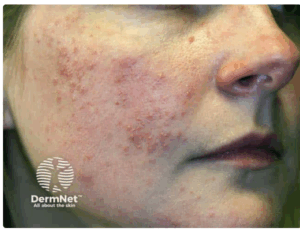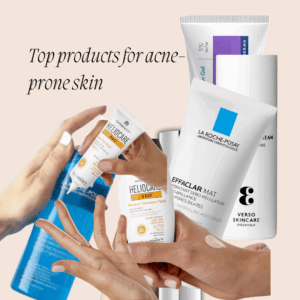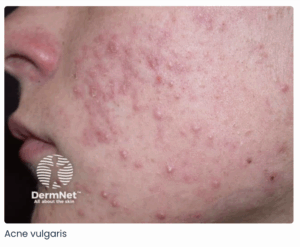
Why Your Acne Keeps Coming Back — Even When You Think You’re Doing Everything Right
17 November 2025
Scroll downWhy does acne keep coming back? Acne Dermatologist Treatment & Insights.
Recurring acne is one of the most common concerns we see at No.23. Many people feel they’ve “tried everything” — yet the breakouts keep coming back.
The truth? Most acne returns because the underlying cause hasn’t been treated. Here’s what dermatologists want you to know.

Why Acne Returns: The Hidden Drivers
1. You’re treating the symptoms, not the cause
Topical and over-the-counter spot treatments help temporarily, but acne usually has hormonal or inflammatory drivers.
2. Your skincare is too harsh
Over-cleansing and scrubs create inflammation that worsens acne.
3. Hormones aren’t being addressed
Fluctuating androgens are a major cause of recurring breakouts — especially in women. Diagnosing this can be complex and treatment for this type of acne needs to be managed with care by a dermatologist.
4. Stress and sleep cycles
Cortisol increases oil production and micro-inflammation.
5. Incorrect product layering
Certain combinations deactivate active ingredients. Using products such as Vitamin C in high concentrations can also worsen acne.
6. You stop treatment too early
Acne pathways need 8–12 weeks minimum to remodel. Sounds tough but it really is worth sticking with treatment protocols to make sure you get good long-term results and to avoid rebounding of acne.
7. You have undiagnosed acne variants
Fungal acne, rosacea-acne, cystic acne — all need specific treatment. We see a lot of people with rosacea and acne, who have been using products to treat the acne and inadvertently worsening rosacea.

Papular rosacea: credit NZ dermnet.
What Really Works (Dermatologist Approach)
Prescription-strength retinoids (under medical care, once you have a correct diagnosis).
Hormonal therapy where appropriate
Oral options for persistent pathogens
Laser options such as AviClear
Skin barrier repair
Structured, supervised treatment plans
- Correct skin care – our most commonly recommended skincare from the dermatologists are:
- Cleanser: CeraVe Hydrating / Blemish Control, or Cetaphil Gentle Cleanser
- Moisturiser: Effaclar Duo+M
- Treatment: Acnecide (benzoyl peroxide), or Skinbetter Alpharet (prescription only)
- SPF: Heliocare 360 Oil-Free Gel SPF (or mineral version for sensitive skin)

Conclusion
If your acne keeps coming back, the issue isn’t you — it’s the treatment approach. A dermatologist can identify the root cause and build a plan that truly works long-term.
We’re happy to help if you need further support for acne. Our dermatologists are some of the best in London and can help you achieve clear skin.
Find out more about our acne treatments here.
Contact us via our form here on 02039411815 to speak with a human and understand what is best to help you.
Please note: Every skin condition is unique. The information provided here is not a replacement for professional medical assessment, diagnosis or treatment. If you’re worried about a mole, rash or other skin concern, please seek a dermatologist’s advice.
Follow us
no23skin
